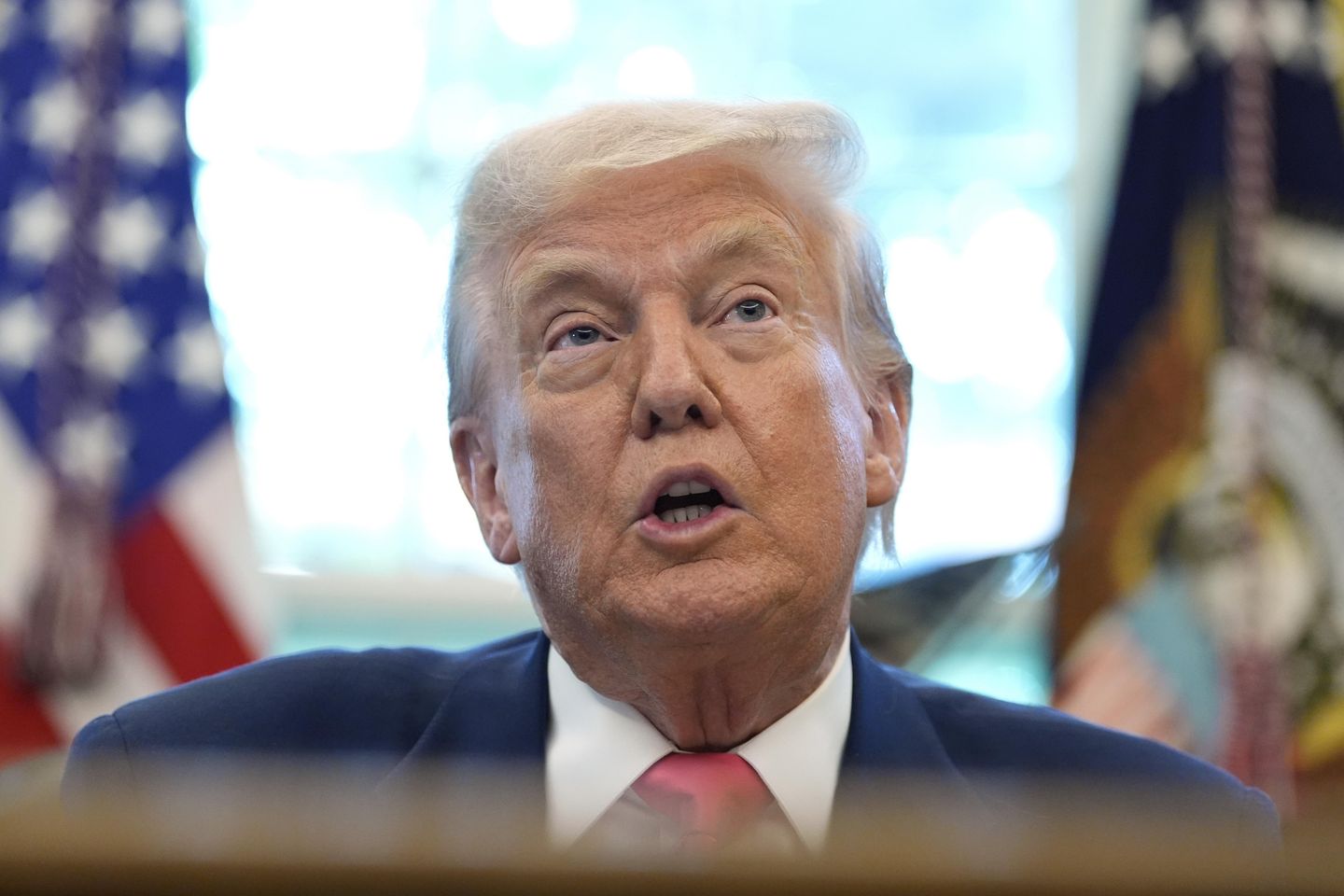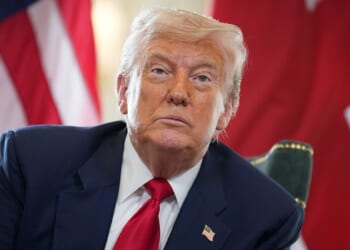
President Trump said Monday that a deal with chipmaker Intel is just the beginning of a push to give the U.S. government a stake in private companies. Here’s what you need to know about Trump’s unusual approach to economic governance:
The Intel equity deal announcement
Trump reveals government ownership stake in major chipmaker:
- Trump said Friday that Intel, massive but struggling chip manufacturer, agreed to give U.S. government 10% equity stake in company
- Deal made in return for funding promised under President Biden’s 2022 law to bolster America’s semiconductor industry
- Trump said any profit derived from Intel stake “goes to the USA”
- “I will make deals like that for our Country all day long. I will also help those companies that make such lucrative deals with the United States,” Trump wrote on Truth Social
The broader economic strategy
President outlines expansion of government ownership approach:
- “I love seeing their stock price go up, making the USA RICHER, AND RICHER,” Trump posted
- Trump taking unusual approach to economic governance by making deals that allow Uncle Sam to take ownership stake in private businesses receiving government support
- Treasury to pocket some of profits from these arrangements
- Trump said Intel deal just beginning of push to give government stakes in private companies
The existing government stake examples
Administration already secured ownership positions in other companies:
- Trump arranged “golden share” for government in U.S. Steel as part of merger talks with Japanese buyer
- Defense Department took stake in MP Materials, which mines for rare earths
- Pattern shows systematic approach to government equity participation in strategic industries
- Demonstrates expansion beyond just Intel into multiple sectors
The sovereign wealth fund vision
White House official explains broader financial strategy:
- Kevin Hassett, director of White House National Economic Council, said Trump’s effort likely to expand to other companies as part of effort to build sovereign wealth fund
- Fund would invest government’s financial assets or surplus revenue and use proceeds to fund social and infrastructure programs or pay dividend to American taxpayers
- Mechanism used in countries like Norway, Turkey and Qatar
- Hassett said U.S. has no intention of interfering in private sector operations like Intel but will look to expand its portfolio
The CHIPS Act connection
Current deal tied to massive semiconductor spending:
- “This is very, very special circumstance because of massive amount of CHIPS Act spending that was coming in,” Hassett told CNBC’s “Squawk Box”
- “But the president has made it clear all the way back to the campaign, he thinks that in the end, it would be great if the U.S. could start to build up sovereign wealth fund”
- “So I’m sure that at some point there’ll be more transactions, if not in this industry then other industries”
- Links government investment to strategic national priorities in semiconductor manufacturing
The socialism and China comparisons
Approach raises concerns about government market intervention:
- Approach raising eyebrows, with some likening it to socialism or China’s practice of intertwining its central communist government with private sector
- Critics question departure from traditional free-market principles
- Comparison to authoritarian economic models where government heavily involved in private business
- Represents significant shift from typical American economic approach
The precedent defense
Administration officials argue government stakes not unprecedented:
- Hassett said U.S. stake in corporations not unheard of, pointing to government backing of mortgage financing agencies Fannie Mae and Freddie Mac
- “We’re absolutely not in the business of picking winners and losers,” Hassett said
- “But this is not a thing that is unprecedented”
- Officials frame approach as extension of existing government financial involvement rather than radical departure
The competitive advantage argument
Commerce Secretary celebrates strategic benefits:
- Commerce Secretary Howard Lutnick taking victory lap over Intel deal, saying it will make U.S. competitive in key sector
- “This historic agreement strengthens U.S. leadership in semiconductors, which will both grow our economy and help secure America’s technological edge,” he said
- Positions government stakes as national security and economic competitiveness issue
- Frames deal as protecting American interests in critical technology sectors
Read more:
• Trump says Intel stake will start government-private sector trend
This article is written with the assistance of generative artificial intelligence based solely on Washington Times original reporting and wire services. For more information, please read our AI policy or contact Ann Wog, Managing Editor for Digital, at awog@washingtontimes.com
The Washington Times AI Ethics Newsroom Committee can be reached at aispotlight@washingtontimes.com.

















